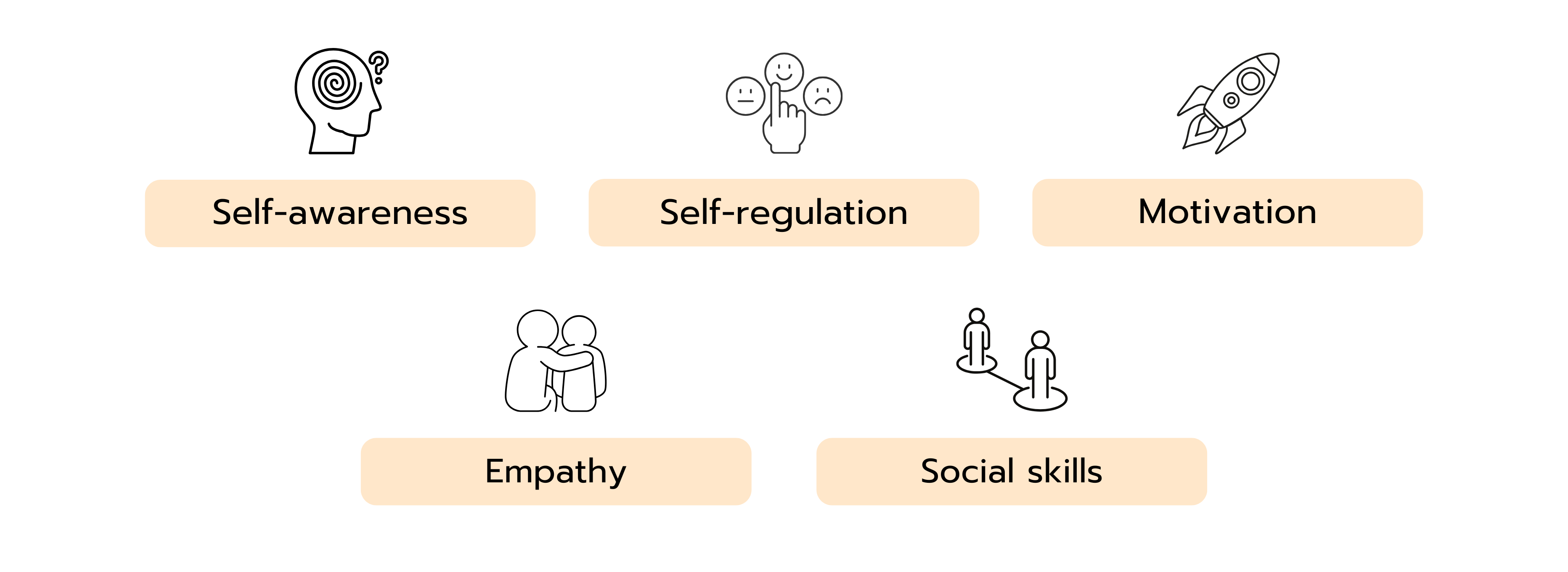Emotional intelligence means being aware of, understanding, and managing your own emotions – while also accurately interpreting the emotions of others and responding appropriately. It helps you handle stressful situations, strengthen relationships, and communicate more effectively. Especially in consulting, where you work closely with clients and teams, it can be a real advantage. 💡🌟
The Five Key Components of Emotional Intelligence

✔ Self-awareness – The ability to reflect on your own emotions and assess them realistically.
✔ Self-regulation – The conscious management of emotions to remain professional in any situation.
✔ Motivation – The inner drive that helps consultants overcome challenges.
✔ Empathy – Understanding the emotions of others, essential for working effectively with clients and teams.
✔ Social skills – Strong communication, conflict resolution, and teamwork as key success factors.
Why is Emotional Intelligence Important in the Application Process And the Consulting Industry?
- Client relationships: In consulting, managing client relationships and expectations is crucial. Emotional intelligence helps you better understand their needs, communicate more effectively, and build long-term relationships.
- Teamwork: Consulting teams often collaborate on complex projects. High emotional intelligence makes collaboration easier, reduces conflicts, and fosters productive team dynamics.
- Leadership skills: Especially in leadership roles, emotional intelligence is essential. Leaders need to motivate, resolve conflicts, and create a positive work environment – all of which are much easier with a high level of emotional intelligence.
- Crisis management: Consultants often face unexpected challenges and high stress. Emotionally intelligent individuals remain calmer in such situations, make clearer decisions, and can respond appropriately.
- Client satisfaction: When you truly understand clients, you can offer more tailored solutions – leading to happier clients who are more likely to recommend your consulting services.
Conclusion
Emotional intelligence is crucial both in the application process and in daily work. It helps build interpersonal relationships, communicate effectively, manage conflicts, and create a positive work environment – all of which lead to better consulting results and greater success. 🚀

